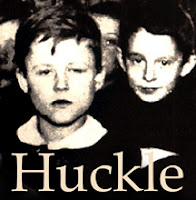Burning Questions
Sally Cat Sometime around 2 a.m. this morning I was laying in bed with Sally Cat, as is our custom when she’s ill. —Misery loves company, after all! That scallywag was crying and sniffling and feverish. Sally Cat can be dramatic at these moments, and a bit of a whiner.
Sometime around 2 a.m. this morning I was laying in bed with Sally Cat, as is our custom when she’s ill. —Misery loves company, after all! That scallywag was crying and sniffling and feverish. Sally Cat can be dramatic at these moments, and a bit of a whiner.
And yet she often responds to a headlong wipeout by getting up—with budding goose egg on her forehead—and shouting “I’M OK” while tearing off after Huckle!
So, there she was, feverish and cranky when she suddenly grew quiet. Then she asked her question.
“Mom, do bears really love honey?”
I thought: where on earth did that come from? Then lo, to say nothing of behold, she went right back to sobbing and complaining.
A couple of days ago, she interrupted another drama to calmly ask, “Can horses swim?” Yes, at that moment, that’s what she needed to know.
I have no idea if other children ask such questions. But they’re commonplace around here. Perhaps Sally Cat is an Aspie. Could be.
The mind overshadows the body.
Great aspies in history It’s well known that Aspies like our Huckle have two positions: ON and OFF. There is no middle, or idle, or “lemme think.” No, there’s run like the wind OR sleep like the dead. —That’s it.
It’s well known that Aspies like our Huckle have two positions: ON and OFF. There is no middle, or idle, or “lemme think.” No, there’s run like the wind OR sleep like the dead. —That’s it.
But that can make switching difficult.
I know the father of an Aspie boy who, until recently, had to sit at his son’s bedside and physically hold his child’s eyes shut to help him reach “off” at bedtime. Other parents make use of music, aromatherapy, weighted blankets, and elaborate bedtime rituals to help the Aspie mind find OFF.
It can be exhausting. Sometimes, OFF is good. If you can just flip that damed switch!
On the other hand, maybe “off” is overrated. After all, four-year-old Huckle thinks and says some pretty awesome stuff. “Where was I before I was born,” comes to mind. That’s a damned good question.
Just the other day, he hunted for a lost toy. I helped him look, but I could not find it. I finally said that it didn’t seem to be anywhere.
Huckle said: “everything is somewhere, Mom!” and he just kept looking. My jaw dropped. The child maintained a truth of which his mother had lost her grasp. What would this benighted world be without such blazing bulbs as Samuel Beckett, William Butler Yeats, Bertrand Russell, Einstein or Newton? And let’s not forget Dan Akroyd. Or even Andy Kauffman and his alter ego “Tony Clifton.” Okay, forget that last guy, he was just a jackass, but you see my point. Where the mind never sleeps, great things are attainable.
What would this benighted world be without such blazing bulbs as Samuel Beckett, William Butler Yeats, Bertrand Russell, Einstein or Newton? And let’s not forget Dan Akroyd. Or even Andy Kauffman and his alter ego “Tony Clifton.” Okay, forget that last guy, he was just a jackass, but you see my point. Where the mind never sleeps, great things are attainable.
Atypical illumination
If you ever hear the parent of an Aspie say, “My child isn’t normal," here is my advice. First, resist the urge to kick that parent. Then suggest that they consider saying that their beloved Aspie is not mediocre or typical or average.
No, their Aspie child is highly ILLUMINATED, a Xenon headlight in an oil lamp world. Yes, he is atypical. He is not “normal.” But who can say that the Aspie does not transcend the normal, or at least stand with complete equality beside it?
Undeniably, in our harsh world, the atypical can be made to feel beneath it instead.
There is no zero Recall the transcendent moment at the end of 1957’s The Incredible Shrinking Man. Our hero is shrinking, and, for a long time, he is made to feel inferior. Normal people do not grow smaller. They are 5 foot 5 or 6 foot 2, and they stay that way.
Recall the transcendent moment at the end of 1957’s The Incredible Shrinking Man. Our hero is shrinking, and, for a long time, he is made to feel inferior. Normal people do not grow smaller. They are 5 foot 5 or 6 foot 2, and they stay that way.
But not our hero. He keeps shrinking. It’s not normal. He is horrified.
But then, as he approaches the infinitesimal, he realizes his mistake:
I was continuing to shrink, to become... what? The infinitesimal? What was I?...[W]as I the man of the future?...[W]ould other beings follow me into this vast new world?....
I looked up, as if somehow I would grasp the heavens. The universe, worlds beyond number, God's silver tapestry spread across the night. And in that moment, I knew the answer to the riddle of the infinite….And I felt my body dwindling, melting, becoming nothing. My fears melted away. And in their place came acceptance. All this vast majesty of creation, it had to mean something. And then I meant something, too. Yes, smaller than the smallest, I meant something, too.To God, there is no zero!










